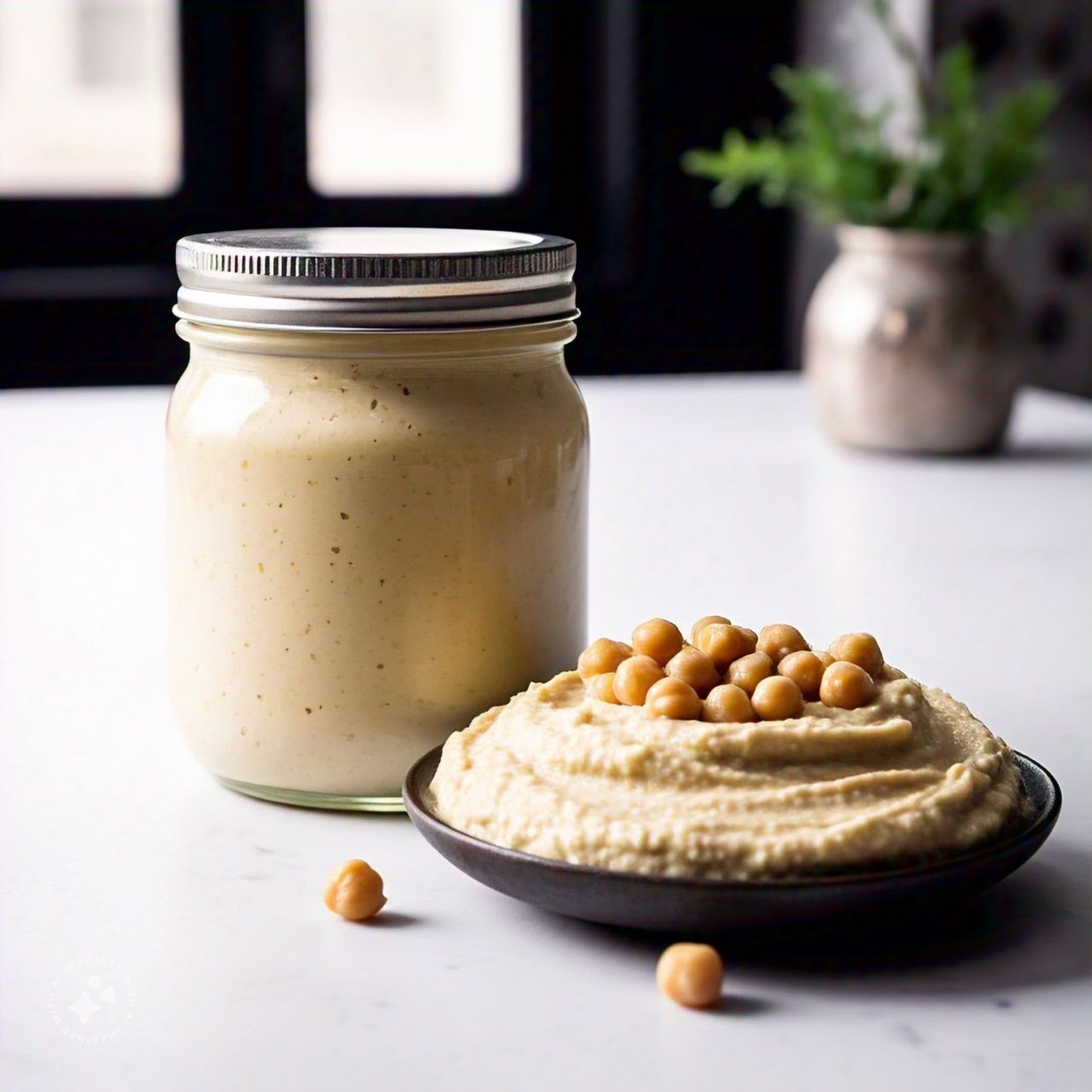Hummus paste is a creamy and versatile spread made primarily from chickpeas, tahini, olive oil, lemon juice, and garlic. This Mediterranean staple is loved globally for its rich flavor and health benefits. It's not only a dip but also a base ingredient that can elevate a variety of dishes.
Benefits of Hummus Paste
Nutritional Advantages
Hummus is packed with nutrients that offer several health benefits:
-
Rich in Protein: Ideal for vegetarians and vegans.
-
High in Fiber: Supports digestion and gut health.
-
Contains Healthy Fats: Olive oil and tahini provide heart-friendly monounsaturated fats.
-
Loaded with Micronutrients: Includes vitamins B6, E, and minerals like magnesium and iron.
Convenience
-
Ready-to-use: Store-bought or homemade hummus paste saves preparation time.
-
Versatility: Fits into a variety of cuisines and recipes.
Health Benefits
-
Supports weight management due to its high satiety index.
-
Helps regulate blood sugar levels thanks to its low glycemic index.
-
Provides antioxidants for overall well-being.
How to Make Hummus Paste
Ingredients:
-
1 cup of cooked chickpeas.
-
2 tablespoons of tahini.
-
2 tablespoons of olive oil.
-
2 tablespoons of lemon juice.
-
1 clove of garlic.
-
1/2 teaspoon of salt.
-
Water as needed for consistency.
Instructions:
-
Blend chickpeas, tahini, olive oil, lemon juice, garlic, and salt in a food processor.
-
Gradually add water until the desired consistency is achieved.
-
Store in an airtight container in the refrigerator for up to a week.
Common Uses of Hummus Paste in Cooking
As a Dip
-
Serve with vegetable sticks, pita bread, or crackers.
-
Pair with roasted chickpeas for a double protein snack.
As a Spread
-
Use as a healthy alternative to mayonnaise in sandwiches and wraps.
-
Spread on toast with toppings like avocado or tomatoes.
As an Ingredient
-
Stir into pasta for a creamy, dairy-free sauce.
-
Mix with spices to create salad dressings.
-
Use as a base layer in vegan pizzas.
Cooking Tips for Hummus Paste
Best Practices
-
Use freshly cooked chickpeas for the creamiest texture.
-
Add roasted garlic for a deeper flavor.
-
Drizzle olive oil on top before serving for enhanced richness.
Storage Tips
-
Refrigerate in an airtight container to maintain freshness.
-
Freeze in small portions for up to three months.
Comparisons: Store-Bought vs. Homemade Hummus Paste
Store-Bought Paste
-
Advantages: Convenient, readily available.
-
Disadvantages: May contain preservatives or added sugars.
Homemade Paste
-
Advantages: Fresh, customizable, and preservative-free.
-
Disadvantages: Requires preparation time and effort.
Seasonal and Holiday Favorites with Hummus Paste
Winter Recipes
-
Warm hummus bowls with roasted vegetables.
-
Spiced lentil and hummus soup.
Summer Recipes
-
Hummus-stuffed bell peppers.
-
Mediterranean salad with hummus dressing.
Holiday Recipes
-
Hummus platters with assorted dippers.
-
Hummus-stuffed mushrooms for appetizers.
Impact of Food Waste on the Environment
Reducing Waste with Hummus Paste
-
Use leftover chickpeas or tahini to make hummus, reducing waste.
-
Store properly to avoid spoilage and extend shelf life.
-
Repurpose leftover hummus by adding it to soups or stews.
By efficiently using ingredients for hummus paste, you contribute to reducing food waste and its environmental impact.
FAQs About Hummus Paste
1. Can hummus paste be frozen?
Yes, freezing in small portions ensures it remains fresh and ready to use.
2. How do I make hummus paste creamier?
Peel the chickpeas and add more tahini or olive oil for a smoother texture.
3. Is hummus paste vegan?
Yes, traditional hummus paste is entirely plant-based.
News and Information: Trends in Hummus Paste Usage
-
Popularity Surge: Increasing demand for plant-based protein options has boosted hummus paste’s global appeal.
-
Innovative Flavors: New variations like beetroot hummus, avocado hummus, and spicy harissa hummus are trending.
-
Sustainability: Brands focus on eco-friendly packaging and sourcing.
Conclusion: Why Hummus Paste Is a Must-Have in Your Kitchen
Hummus paste is a nutrient-packed, versatile, and sustainable ingredient that fits into any meal plan. Whether as a dip, spread, or cooking base, its rich flavor and health benefits make it indispensable.





Share:
Turmeric Latte: A Golden Drink for Health and Wellness
Thandai Masala: A Traditional Indian Spice Blend for Health and Flavor